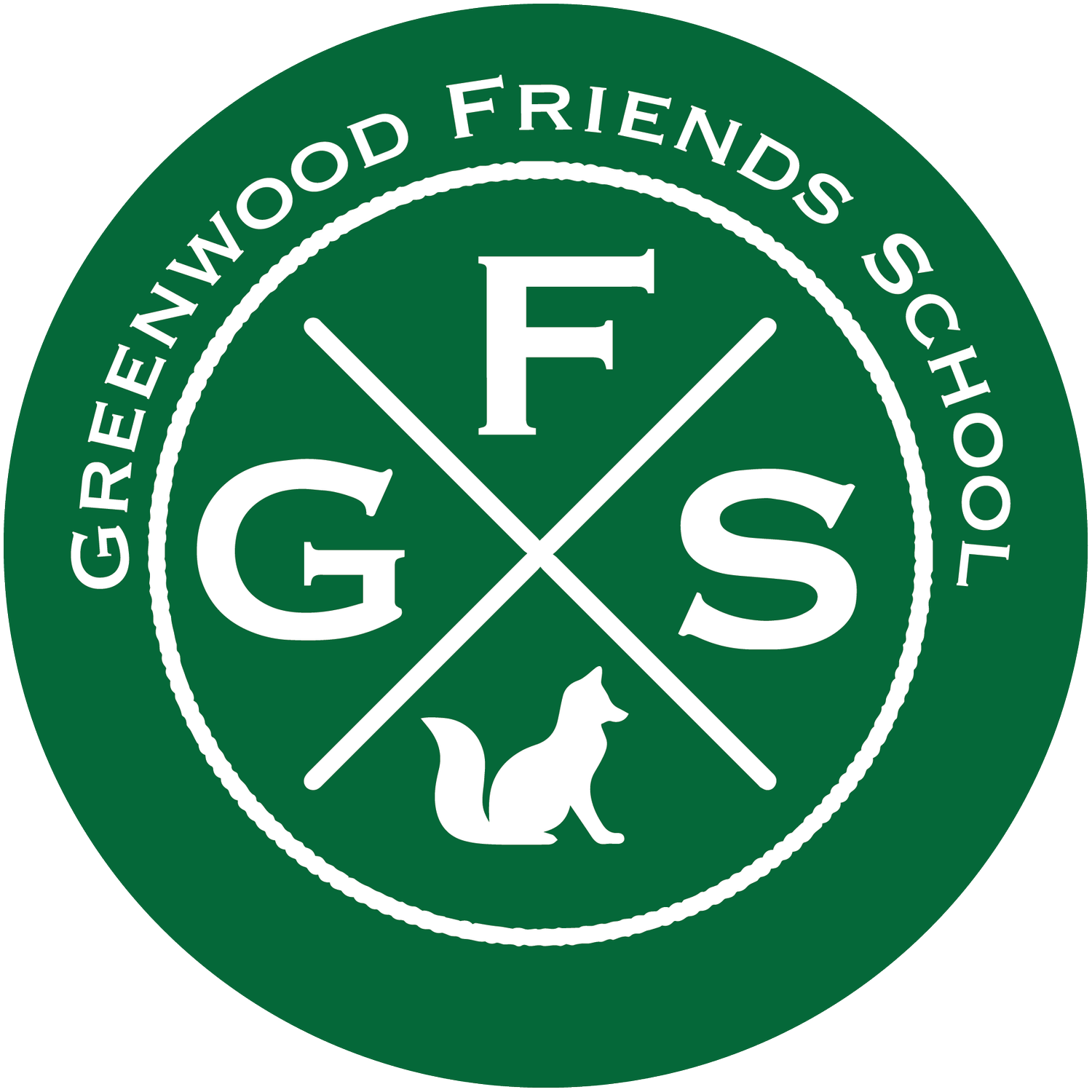
Elementary School Curriculum (K-5)
Grades K-3
Grades K-3 at Greenwood Friends School are the years when children become readers, writers, and mathematicians, developing confidence and enthusiasm as they experience success in a literature-rich environment. Teachers and students work together as a whole group, in small groups and one-on-one reading, writing, and working with words daily. Each student’s interests, skills and abilities are taken into account as teachers gently encourage them to challenge themselves and continue moving forward.
Our math curriculum sets the stage for lots of engaging math games and activities. Students learn math concepts as they solve everyday questions – for example, they survey the class and create graphs to communicate about each other as well as make decisions. Hands-on activities help children develop number sense and experiment with simple operations.
Annual thematic studies are a unifying thread which allows students to apply their skills as they observe, question, design investigations and share results. Students explore social, cultural, and scientific concepts through hands on experiences, including a rich variety of field trips, visits from experts, and classroom experiments.
Students engage with reading, writing, working with words, every day; these are the cornerstones of Greenwood’s literacy program. A delight for reading is encouraged with lots of genuine literature and carefully guided practice. Each student spends time reading with a buddy, by themselves, or with a teacher. Writing workshop is just one way in which students are nurtured as authors. Student-made bulletin boards, displays, reports, and books give genuine reasons to write.
Community: Inspired by the Quaker belief that there is that of God in every person, teachers take time to get to know each student individually, culturally, and developmentally. Community is carefully built and consciously nurtured. With adult support and guidance, children are taught how to negotiate with each other and problem-solve as conflicts arise. As learners, students rely on each other as resources, teammates, appreciative audiences, and constructive critics.
The importance of human creativity and expression is understood first-hand as students learn to use genuine tools and techniques to make art and music. Displays and performances are a regular part of school life.
The specific skills of negotiation and mediation are taught as teachers help students create their own community of learners. With guidance, students practice using honest and direct communication as they learn to take turns, use “I messages” and make suggestions when conflicts arise. Students see a variety of cultures and diversity within themselves and our program especially as they experience classes in languages, cultures, music and art.
Grades 4-5
Grades 4-5 are designed to help students acquire the skills to become independent and creative thinkers and communicators. Learning is progressive and activities, assignments, and projects are differentiated, taking into account student level and learning style. Work in the content areas tends to delve deep rather than skim the surface.
Students are met where they are academically and are challenged to move forward in a wide variety of subjects. From language arts, math, and science to music, art, and Spanish, students find teachers who take the time to truly know them. The math program solidifies skills, introduces practical, life-time concepts (like percentages and ratios), and offers many opportunities for critical thinking and problem solving.
Students use multiple senses to explore and learn more about their bodies, the planet, and the universe. We use hands-on activities with real world connections to help students see the science all around them. We act out cell processes, play games to learn how animals adapt to their environments, and explore the school’s garden to learn about plant and animal interactions. We open up a world of discovery that inspires students to become excellent observers and critical problem-solvers.
In social science, students make connections, examine cause and effect relationships, explore a wide variety of cultures, and understand and use geographic tools. Studying current events, our state’s history and how we all fit within the world makes a true connection beyond the doors of GFS.
The aim of language arts is to help students gain the skills they need to become effective communicators, working to become skilled at crafting sentences and paragraphs, and learning to write for a wide variety of purposes. Through independent and group games and activities, students expand their vocabularies as well as their spelling and grammar skills. In these years, students transition from learning the nuts and bolts of reading, to using reading to gain information or enjoyment. Intermediate students are expected to talk about what they read and write, and strive to become attentive listeners.
“The academics are creative, inspiring, have an amazing depth and richness, and are well-supported by the staff. We love the math and spelling games. Thank you, Greenwood, for supporting playful learning!”
-Greenwood Parent

